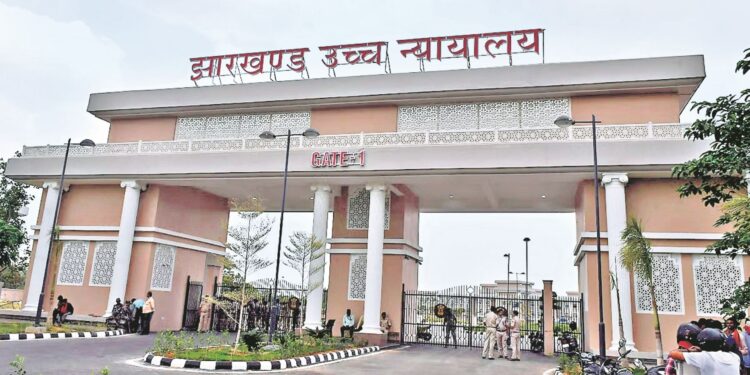The Jharkhand High Court on Thursday stayed the implementation of the Jharkhand State Employment of Local Candidates in Private Sector Act, 2021, which mandates 75% job reservations for local candidates in private sector employment. This decision came after the Jharkhand Small Industries Association and others filed a petition challenging the constitutional validity of the law [Jharkhand Small Industries Association & Ors v. State of Jharkhand & Ors].
The law applies to private employers with a workforce of 10 or more and requires them to reserve at least 75% of jobs with monthly wages below ₹40,000 for local candidates. The Bench, comprising Chief Justice MS Ramachandra Rao and Justice Deepak Roshan, observed that the law appeared prima facie unjust and discriminatory, potentially infringing upon the fundamental rights guaranteed under the Constitution, especially Article 19, which protects the right to carry on business, and Article 21, which ensures the right to life and liberty.
The Court noted that such a law could severely restrict private employers’ rights to hire employees from the open market, a power that the Constitution safeguards. The Judges remarked that the state could not compel private employers to act in a way the Constitution prohibits, thus infringing on the employer’s freedom to choose its workforce. The Court also emphasized that private employers must be allowed to hire the best-qualified individuals for specific roles, irrespective of their local status.
The petitioners argued that the law’s implementation would impede the business operations of private employers, particularly in rural areas where the demand for labour often comes from non-local workers. The petitioners also highlighted the law’s adverse impact on the freedom of movement and settlement of Indian citizens across the country, which is a fundamental right protected by Article 19(1)(d).
The Court further observed that the law would undermine India’s unity and integrity, potentially leading to a series of similar laws in other states, thus creating divisions among citizens based on their place of residence. The Bench noted that the law could pave the way for regionalism and limit the opportunities for skilled labour outside the state.
The Court cited a similar case where the Punjab and Haryana High Court struck down a comparable law in Haryana, reinforcing the argument against regional preferences in private employment.
In response to the petitioners’ concerns about the state’s threat to penalize private employers who fail to comply, the Court issued an interim stay on the law’s implementation. The Court reasoned that employers would face severe financial penalties without the stay. The matter will be heard again on January 31, 2025.
Additional Advocate General Ashutosh Anand represented the Jharkhand State, while Additional Solicitor General Anil Kumar represented the Union of India. Advocates Amit Kumar Das, Shivam Utkarsh Sahay, and Sankalp Goswami represented the petitioners.
The Jharkhand High Court has temporarily suspended a law requiring 75% reservation for locals in private sector jobs.
Previous Post

















